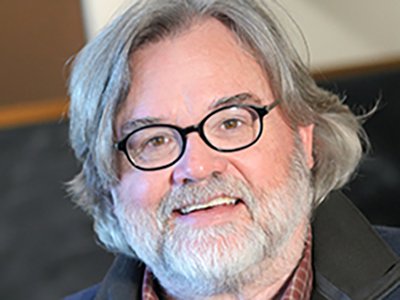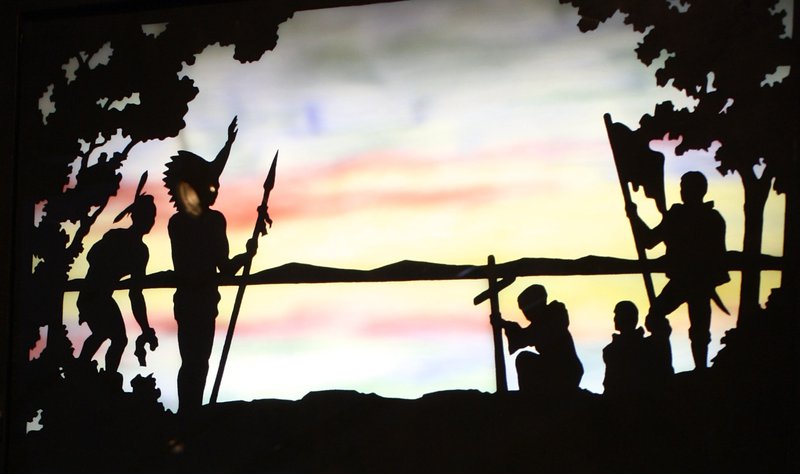Syracuse University to host conference that addresses the legal and theological theory of the Doctrine of Christian Discovery, December 8-10
By Renée K. Gadoua
A series of 15th- and 16th-century papal edicts continues to shape policies that include land usage and mineral extraction across the globe and undergird notions of white supremacy and religious extremism. In 1823, the U.S. Supreme Court cited the edicts, in ruling that a 1763 land sale by the Piankeshaw Indian nation to British citizens was invalid because the Piankeshaw nation did not have the right to transfer ownership of the land. The case, Johnson v. M’lntosh, would ultimately shape the future of international property law.
Two hundred years after the Supreme Court ruling, the wider impacts of the papal edicts, known collectively as the Doctrine of Christian Discovery (DoCD), persist, illustrated by phenomena as varied as extremist rhetoric and destructive weather events caused by climate change. The history and current context of the edicts will be discussed at a major conference on the Syracuse University campus later this fall.
“We’re asking what contributions the study of religion can make to these intractable problems in our culture and modern world.”
– Philip Arnold, conference organizer
“The Religious Origins of White Supremacy: Johnson v. M’lntosh and the Doctrine of Christian Discovery” will take place on the Syracuse University campus Dec. 8-10. Its main sponsor is the Henry Luce Foundation, which awarded the University a three-year grant to examine and challenge the theology and legal theory of the Doctrine of Christian Discovery.
National experts on racism, white supremacy and religious extremism will participate in the upcoming conference, highlighting the College of Arts and Sciences’ role amid important global conversations that challenge the ongoing impacts of fifteenth-century Vatican policies on Indigenous, Black and brown people.

“The issues around religious extremism and the religious roots of white supremacy did not start yesterday,” says Philip Arnold (pictured), faculty in the Department of Religion and conference organizer. “They are part of the framework of colonialism that has its origins in the fifteenth century and we still see manifested today.”
Robert P. Jones, president and founder of Public Religion Research Institute and author of The Hidden Roots of White Supremacy and the Path to a Shared American Future (September, Simon & Schuster) is among high-profile speakers on the conference agenda.
A “sense of divine entitlement, of European Christian closeness, has shaped the worldview of most white Americans and thereby influenced key events, policies, and laws throughout American history,” Jones writes. “The contemporary white Christian nationalist movement flows directly from a cultural stream that has run through this continent since the first Europeans arrived five centuries ago.”
Jones is referring to the DoCD, the series of papal edicts that declare that European civilization and Western Christianity are superior to all other cultures, races and religions and was seen as justifying colonization and oppression.
Also scheduled to speak are Anthea Butler, a historian of African American and American religion and professor of religious studies at the University of Pennsylvania; and Davíd Carrasco, a Mexican American historian of religions at Harvard Divinity School who focuses Mesoamerican cities as symbols, and the Mexican-American borderlands.
The conference also will include:
- Leaders of the Haudenosaunee, the Indigenous peoples on whose ancestral land Syracuse University stands
- Undergraduate poster projects
- Academic paper presentations
- Podcast session by Good Faith Media
- Dinner and tour at Skä•noñh – Great Law of Peace Center, a Haudenosaunee cultural center near Syracuse focused on telling the story of the Native peoples of Central New York through the lens of the Onondaga Nation
- Art competition, gallery and talks
- “In the Courts of the Conqueror,” performed by George Emilio Sanchez
- Partnership with Danielle Boaz of the Coalition to Combat Religious Racism
The conference is the latest initiative of the Luce grant, for which Arnold is principal investigator. The grant also has supported a podcast, open-source publications, research and conference attendance. It runs through 2025.
The DoCD has been used to justify land thefts and the erasure of Indigenous culture, language and spirituality. It continues to influence polices across the globe related to property rights, Indigenous rights and environmental policies, according to conference organizers.
“Multinational corporations are using it to justify resource extraction in various places around the world,” Arnold said. “It goes back to those papal bulls: ‘You’re just savages and the land is empty, so we can take the gold and gems and oil.’ This is still active as a principal of law. It connects a lot of urgent issues of today.”
Registration is here. Organizers expect up to 300 participants. Some conference events will be open to the public. For more information, contact Arnold at [email protected].
###
Contact:
Philip P. Arnold
Syracuse University
315.443.3861
[email protected]
Disclaimer: The views and opinions expressed in this article are those of the authors and do not necessarily reflect the official policy or position of Religion News Service or Religion News Foundation.





